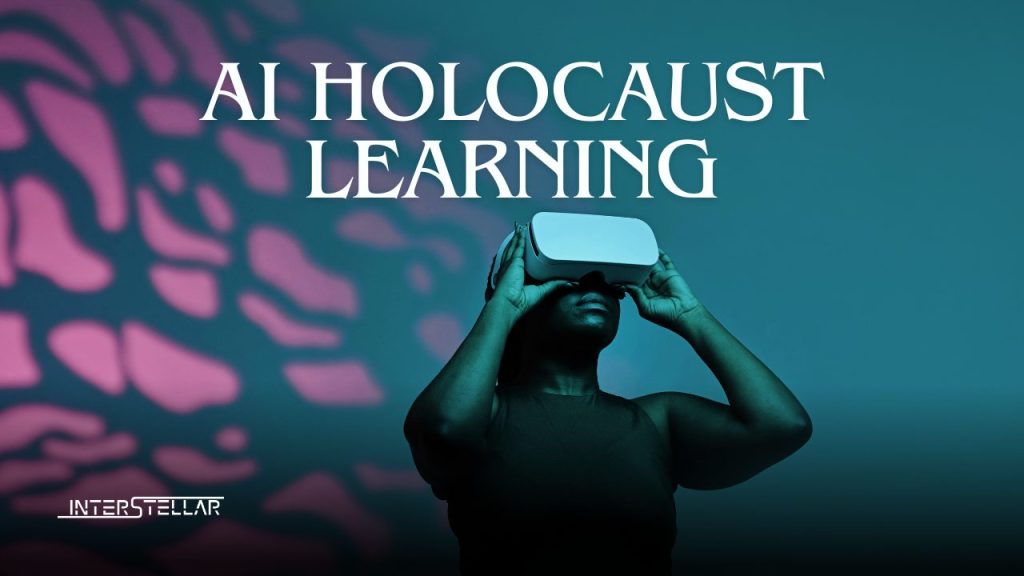Students in Britain Use AI to Learn About the Holocaust
Students in Britain are learning about the horrors of the Holocaust by talking to survivors…without having to leave the classroom. Thanks to cutting-edge Artificial Intelligence and virtual reality, this is now possible.
Preserving Holocaust Memories with Technology
As the number of Holocaust survivors dwindles, program developers at the Holocaust Educational Trust (HET) say it is vital to find ways to immortalise their experiences and life lessons. More than six million Jews were murdered by Nazi Germany during the Second World War. HET Chief Executive Karen Pollock states, “Our mission is to ensure that the stories of Holocaust survivors are kept alive, that the subject of the Holocaust, which happened nearly 80 years ago, is still relevant and something that young people and future generations know about.”
Testimony 360: Bringing Survivor Stories to Classrooms
The digital education programme, named ‘Testimony 360,’ filmed survivors answering more than 1,000 questions that students may pose. It uses AI to analyse a question and find an appropriate response from the vast database of pre-recorded answers. Manfred Goldberg, a 94-year-old Holocaust survivor, is the first to feature in Testimony 360. He spent five days recording his answers. Goldberg remarks, “It has become crystal clear that, by far, the most powerful and effective educational impact is achieved by listening to a talk from a survivor in the first person.”
Immersive Learning Through Virtual Reality
Using virtual reality, the technology also allows students to explore a concentration camp and Goldberg’s former home in Germany. One student shared their excitement, “My favourite part was using the VR headsets and how we got to see the spaces because it was really cool. Since we’re not able to go to spaces in real life, Testimony 360 brought it to life for us, so that we could imagine and see everything, and hearing Manfred’s voice explain these places made it a magical experience.”
Testimony 360 was developed in response to a rise in reports of antisemitism across Europe following the outbreak of war between Israel and Hamas in October 2023. “Today we’re seeing an explosion of antisemitism globally and the testimonies of people like Manfred, preserving them and enabling that testimony to reach so many people in the future, that’s the power of this new resource,” said Pollock.





